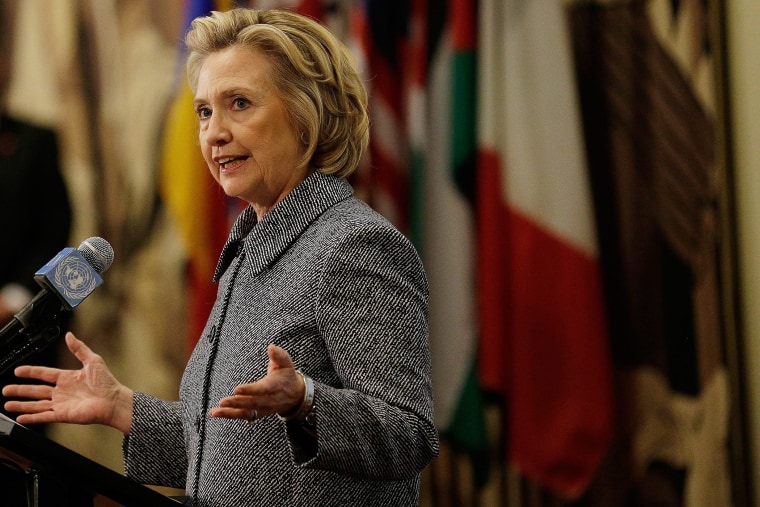It's been clear for months that former Secretary of State Hillary Clinton would do for the new congressional Benghazi committee exactly what she's done for the other congressional Benghazi committees: answer questions and provide pertinent information. The issue was never whether Clinton would testify, but rather, when.
Alex Seitz-Wald
reported yesterday that Clinton, the unannounced Democratic presidential hopeful, continues to volunteer her time to the House panel, but she's facing some unexpected resistance about the nature of the forum.
Rep. Trey Gowdy, the Republican who leads the House Select Committee on Benghazi, summoned Clinton Tuesday morning to sit for a private interview with the committee before May 1. Clinton has previous said she is ready and willing to testify, and a spokesperson reiterated that position Tuesday afternoon. "Secretary Clinton already told the committee months ago that she was ready to appear at a public hearing. It is by their choice that hasn't happened. To be clear, she remains ready to appear at a hearing open to the American public," spokesperson Nick Merrill said.
This may seem counter-intuitive given the circumstances. The House Select Committee on Benghazi -- the eighth congressional panel to seek answers to questions that have already been answered -- seems to exist solely to undermine Clinton and her likely White House ambitions.
Given this, it's tempting to assume that Gowdy, the far-right GOP chairman of the panel, would want as big a public spectacle as possible, featuring cameras, crowds, and drama, as Republicans pound the table and demand answers. Similarly, it's also tempting to assume Clinton would want a private, closed-door discussion, shielded from public scrutiny, so as to deny attention to discredited conspiracy theories and prevent voters from seeing her on the defensive in response to GOP grilling.
Except, those assumptions are backwards -- Clinton wants a public hearing for all the world to see, while Republicans have invited the former secretary to a "private interview."
Why is that?
From Clinton's perspective, she seems quite confident that she can get the better of the House Republicans on the panel -- there's nothing they can throw at her that she hasn't seen before -- and she's already demonstrated that when it comes to the deadly 2012 attack in Libya, Clinton has nothing to hide.
But then there's Gowdy and his GOP cohorts. The official line -- Gowdy wants a private hearing because he's not convinced he has all the relevant emails -- seems very hard to believe. Indeed, it's hard to see how private emails would be relevant at all to whether or not Clinton's testimony is behind closed doors or open to everyone.
Go ahead and call me paranoid, but this sure seems like the perfect setup to allow Gowdy -- or someone on his staff -- to leak just a few bits and pieces of Clinton's testimony that put her in the worst possible light. Darrell Issa did this so commonly that it was practically part of the rules of the game when he was investigating Benghazi and other Republican obsessions. Who knows? Maybe Gowdy is a more honest guy. But since Clinton herself has offered to testify publicly, why would anyone not take her up on it? It's not as if any of this risks exposing classified information or anything.
Go ahead and call me paranoid, too. It seems to me that the issue of scrutiny is one of control -- in a public hearing, Clinton could (and probably would) take charge, knocking down dumb questions, calling out dumb questioners, and making clear that the entire exercise is pointless.
But in a "private interview," Gowdy is in control, leaking what he and Republicans want to leak, asking what they want to ask without regard for Clinton making them appear foolish.
